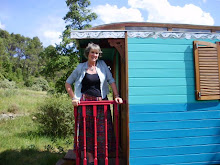 I had a quick google to see how to preserve flowers, which I thought I’d do for Easter and the simnel cake that’s in the planning. This year we have had a lot of viola odorata – I have a few in my garden, but there are very many along the banks of the canal, not carpets of them but far more than I remember from last year and they have lasted for much longer. That’s because of all the rain we’ve had.
I had a quick google to see how to preserve flowers, which I thought I’d do for Easter and the simnel cake that’s in the planning. This year we have had a lot of viola odorata – I have a few in my garden, but there are very many along the banks of the canal, not carpets of them but far more than I remember from last year and they have lasted for much longer. That’s because of all the rain we’ve had.
So following through on candied flowers, someone suggested freezing individual flowers into icecubes. Hmmm. ? Then I noticed something that suggested making sweet violet syrup – and I visualised a delicate violet syrup being topped up with something sparkling. The recipe suggested two cups of violets. So I set off with LB, bag in hand and knife in my pocket and denuded every violet I could see for two kilometres. I then felt extremely guilty that I was robbing others of the lovely sight of these harbingers of Spring. However, I reasoned that at least it was towards the end of the season and now they were being replaced by the muscari popping up like little blue traffic lights, so I picked and then the next day the few I had missed.

I had more than two cups so put them into one and a half cups of filtered water and boiled for 15 minutes before straining through the built-in filter of my coffee machine. I then decided not to add quite the equivalent weight in sugar to make the syrup – it seemed like an awful lot of sugar – and boiled again until it looked syrupy. By this time it was also a rather unappetising greeny colour. The only food colouring I have is blue, so having filled an empty vinegar bottle with my syrup, I put the remaining drops into a glass of water to take to bed with me. It looks like an intergalactic drink from the Starship Enterprise and you have to really use your imagination to get the taste of violets.
I suppose, though, with a touch of red colouring and the story of picking the violets to make the syrup, the romance of it will will be charming enough when served to friends at Easter !
[ As a post sriptum : I use Reader’s Digest Word Power Dictionary which also gives the origins of words. It says : “The word harbinger came into English via Old French from a Germanic root.
The Old German word heriberga meant ‘shelter or lodging for an army’. In Old French herberge – ‘lodging’ – gave rise to the verb herbergier – ‘to provide lodgings’ – and the noun herbergere – ‘one who provides lodgings’. This entered Middle English as herberger or herbenger with the meanings ‘one who provides lodgings’ and ‘a host or entertainer’.
Later it came to denote a person sent ahead to find lodgings for troops or more generally, a pioneer who prepares the way for others. By the end of the 16th century the modern sense, with its broad figurative use, had become established.” ]








